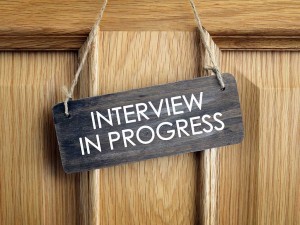 Landing an in-house job interview can be a great feeling—especially if the position is with a law department you find especially exciting or is the ideal next step in your career path. But nailing an interview is more than just showing up, answering some questions and waiting for the phone to ring. Approaching the interview strategically can be the difference between accepting an offer or continuing your search.
Landing an in-house job interview can be a great feeling—especially if the position is with a law department you find especially exciting or is the ideal next step in your career path. But nailing an interview is more than just showing up, answering some questions and waiting for the phone to ring. Approaching the interview strategically can be the difference between accepting an offer or continuing your search.
Savvy job-seekers follow these guidelines when heading out for an interview:
1. Treat it like it’s a competition, because it is.
When it comes to landing a coveted in-house spot, there’s no prize for second place. It’s helpful to approach the entire interviewing process as a competitive game you’re playing against other skilled candidates. Take it seriously, and put your best foot forward.
2. Know going in that you want the job.
Not every call for an interview is for the job of your dreams—and that’s OK. Even if you aren’t sure that you will accept the job if it’s offered to you, treat the interview process as if you will. Through the interviewing cycle, you may learn more about the position that makes it even more appealing to you. But if, at any point in the process you seemed indecisive or play hard-to-get, the interviewers are likely to pick up on it and write you off. Keep in mind, interviewers respond best to candidates who express enthusiasm about the work and the company. Don’t worry about seeming overeager.
3. Be honest about past experiences, and keep responses short.
Don’t lie about past experience or even embellish on your accomplishments during an interview. If, for example, the interviewer asks you about your knowledge of FCPA and you are well-versed in the law, answer with specifics about your experience, but keep your response short and to the point. On the flip side, if you don’t have experience with a certain area of law the interviewer asks about, be straightforward and answer honestly with “no.”
However, you should follow immediately with, “I’ll get up to speed for you quickly on that topic.” Giving those types of answers demonstrates candor. Interviewers are excellent at detecting BS—and they aren’t interested in rambling answers about the applicability of unrelated experience. If you are honest when discussing potential learning curves, the interviewer will appreciate it.
4. Demonstrate interest.
Although it may go without saying, the best interviews are the ones in which the interviewee has done his homework not only on the position itself, but also on the company and its culture. Read the job description carefully and be prepared to answer specific questions about requirements. Understand the company’s business and mission. Google the company to see if it’s been in the news recently and be ready to discuss those current events. And if possible, talk to other people who work there to develop an understanding about the company’s culture and values.
Additionally, asking questions during the interview shows you’re genuinely interested in learning more about the company and the position. Be sure to think of a few before the interview.
5. Be likable.
Sure, it’s obvious, but it’s worth reinforcing. Likability should not be underestimated with regard to winning at the interview. Candidates may all look good—and oftentimes the same—on paper, but interviewers favor those they see as good and loyal teammates. Make it known in your interview that you get along well with others, show self-confidence but not arrogance, and demonstrate that you would fit well within that company’s culture.
Even the more superficial likable traits are important: maintain excellent posture and eye contact, smile and be self-assured (but not cocky), and inject a bit of (appropriate) humor if the situation arises.
Interviewing is the most critical component to landing a great job. And following these best practices will lay the foundation for winning at the interview.
